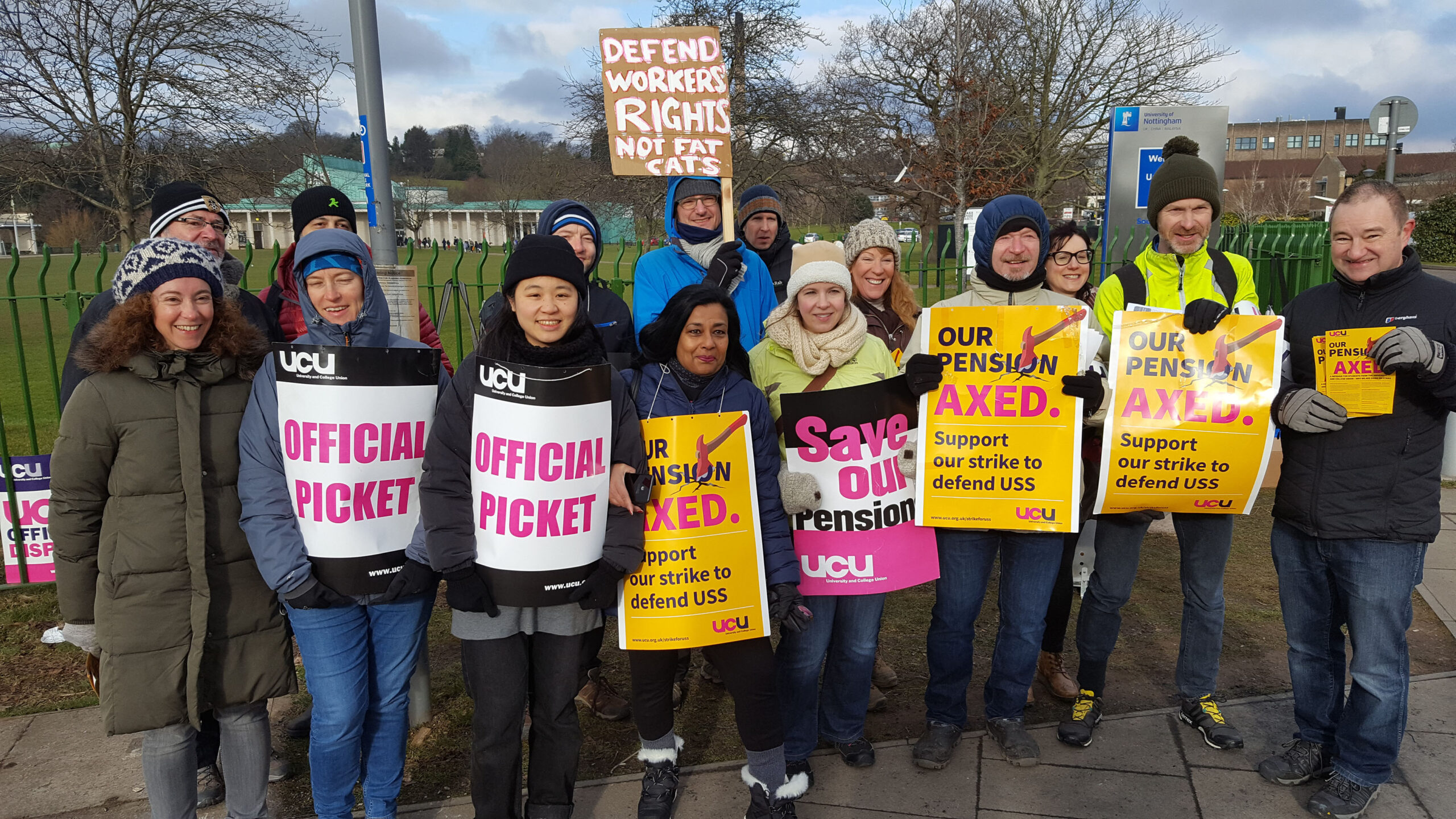Sam Morecroft, Sheffield UCU anti-casualisation officer (personal capacity)
The University and College Union (UCU) is in dispute with employers in higher education, something that will not surprise any of our members.
The results of marketisation and cutbacks which have decimated the sector over the last ten years can be seen everywhere in UK universities.
Since 2009, the real- terms value of our pay has fallen by 21% against the Retail Price Index. Our sector has one of the worst gender pay gaps of any equivalent sector in the world at an average of 18.4%.
The use of super-exploitative casual contracts has exploded on our campuses, with over 72,000 workers in higher education employed casually. Excessive workloads are ruining our quality of life with higher education staff working an average of two days a week above our contracted hours, completely free. This is the reality of UK universities for workers.
That’s why UCU and other campus unions have demanded a pay increase of 7.5% and action to tackle casualisation, the gender pay gap and excessive workloads.
However, in a show of complete intransigence, the University and College Employers Association has refused to improve its below inflation pay offer of 2%, or to take any action at all to address other issues.
The ballot opened on 30 August and will run until 19 October. It’s vitally important that we secure a huge vote for action – not only to smash the Tory anti-union laws and secure the 50% turnout needed but also to signal to the employers that we will not allow any more attacks on our pay, terms and conditions.
Earlier this year the fantastic pensions struggle showed the power we can have when we organise and strike together – we beat the employers’ threats to scrap our defined benefit pensions.
That strike showed how much anger there is on campus at our working conditions, with even casualised workers with little hope of ever receiving a pension joining the strike in huge numbers.
This strike could be even bigger. This time workers in 167 institutions could be out on the pickets and Unison, which represents non-academic staff, is also balloting for strike action.
But the pensions dispute also showed weaknesses in our union. Our conference this year was shut down by staff walkouts orchestrated by general secretary Sally Hunt.
At our recall conference on 18 October, delegates will debate a motion of no confidence in Hunt, and she must defend her record and conduct.
However, we know from experience that fighting to defend our terms and conditions goes hand in hand with the fight for a democratic, campaigning union.
The priority for members must be to ensure the best possible ballot result and to begin to build for strike action on campus now.
The university sector currently holds cash reserves of £44.27 billion – roughly double the GDP of Iceland. The employers can afford to pay us decent wages and treat us like human beings.









